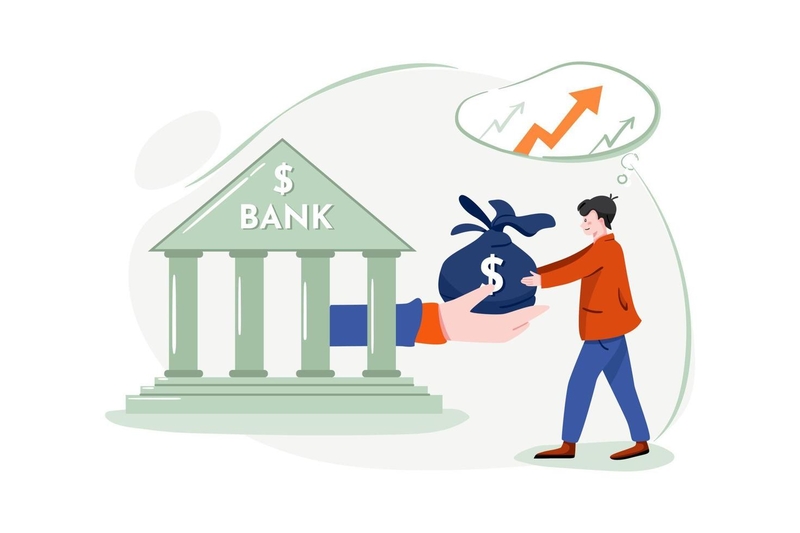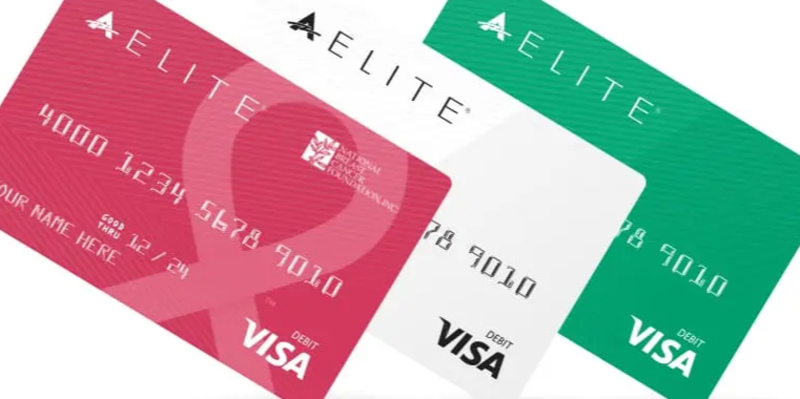Unveiling the Features of Upstart vs. SoFi
Mar 21, 2024 By Triston Martin
When considering Upstart vs. SoFi, understanding the features of each platform is essential. Upstart, founded in 2012, primarily focuses on personal loans. It utilizes artificial intelligence and machine learning algorithms to assess borrowers' creditworthiness beyond traditional metrics. On the other hand, SoFi, established in 2011, offers a broader range of financial products, including student loan refinancing, personal loans, mortgages, investment accounts, and insurance. This article will delve into the various aspects of both platforms to determine which might be a better fit for your financial needs.
Interest Rates and Fees
In choosing between Upstart and SoFi, one significantly considers interest rates and fees. Factors such as credit history, income, and loan term can influence Upstart's interest rates which may range from approximately 8% to 35%. The platform deducts origination fees, usually falling between 0% to 8% of the loan amount, from the total loan proceeds. Contrarily, SoFi presents competitive interest rates, for personal loans as low as 2.99%, and for student loan refinancing beginning at a mere 1.74%. Moreover, it avoids any charges of origination fees or prepayment penalties.
This renders it an economically superior choice to certain borrowers. Consider that Upstart may offer higher rates to borrowers with less established credit histories, while SoFi generally extends more favorable rates to individuals boasting robust credit profiles.
- Transparency: SoFi's fee structure is transparent, with no hidden charges, making it easier for borrowers to understand the total cost of borrowing.
- Refinancing Options: SoFi offers refinancing options for student loans, mortgages, and personal loans, providing opportunities for borrowers to lower their interest rates and monthly payments.
Loan Terms and Limits
Comparing Upstart and SoFi necessitates a profound understanding of loan terms and limits. Specifically, Upstart offers personal loans with terms that span from 3 to 5 years. Correspondingly, the loan amounts oscillate between $1,000 to $50,000. These versatile loans, applicable for debt consolidation, home improvement, as well as significant purchases are at the disposal of borrowers. On the other hand, SoFi provides a broader range of options including loan terms that span from two to seven years. It offers higher loan amounts up to $100,000 for personal loans and $500,000 for mortgages.

This increased flexibility may more effectively cater to borrowers with diverse financial needs. Borrowers must also consider, beyond the mentioned loan terms and limits, how the duration of their loans will impact their overarching financial plans as well as budgeting strategies.
- Prepayment Options: SoFi allows borrowers to make additional payments or pay off their loans early without incurring any prepayment penalties, providing flexibility and potential savings on interest.
- Mortgage Options: SoFi offers mortgage loans with competitive rates and flexible terms, catering to both first-time homebuyers and individuals looking to refinance their existing mortgages.
Approval Process and Eligibility Criteria
Both Upstart and SoFi have distinct approval processes and eligibility criteria. Upstart's AI-driven platform assesses borrowers based on factors such as education, employment history, and earning potential, making it more accessible to individuals with limited credit history or non-traditional backgrounds. SoFi, on the other hand, typically caters to borrowers with strong credit profiles and higher incomes, offering competitive rates and terms to those who meet its stringent eligibility requirements.
Understanding your financial situation and creditworthiness is essential in determining which platform may offer better approval odds and terms. Borrowers, in addition to meeting eligibility criteria, should actively consider their income stability and debt-to-income ratio when they apply for loans from Upstart or SoFi.
- Income Verification: SoFi may require more extensive income verification compared to Upstart, particularly for borrowers seeking larger loan amounts or mortgages.
- Credit Score Impact: Applying for loans from Upstart or SoFi may result in a temporary decrease in credit scores due to hard inquiries, so borrowers should be mindful of timing when submitting loan applications.
Customer Service and Support
The level of customer service and support provided by Upstart and SoFi can influence the overall borrowing experience. Upstart offers customer support via phone and email, with representatives available during business hours to assist borrowers with inquiries and concerns. However, some users have reported longer response times and difficulties reaching customer service representatives. On the contrary, SoFi prides itself on its member-centric approach, providing personalized support through various channels, including phone, email, and live chat.
Additionally, SoFi offers exclusive member events and networking opportunities, enhancing the overall customer experience. Borrowers should not only rely on traditional customer service channels, but they must also delve into the online resources and community forums that Upstart and SoFi offer for frequently asked questions and answers as well as peer-to-peer support.
- Financial Education: SoFi offers a range of educational resources, including articles, webinars, and workshops, to help borrowers make informed financial decisions and improve their financial literacy.
- Member Benefits: SoFi provides exclusive benefits such as career coaching, job search assistance, and discounts on financial products and services to its members, adding value beyond basic loan offerings.
Additional Features and Benefits

Beyond basic loan offerings, both Upstart and SoFi provide additional features and benefits to attract borrowers. Upstart offers a rate-checking tool that allows users to see potential loan offers without affecting their credit scores. Additionally, Upstart partners with banks and credit unions to offer joint loans, allowing borrowers to combine their credit scores and incomes to qualify for larger loan amounts or better rates. SoFi, on the other hand, offers a suite of financial products and services, including investment accounts, retirement planning, and career coaching.
These additional offerings may appeal to borrowers seeking a comprehensive financial solution. Borrowers should not only consider the mentioned features but also delve into specific benefits and perks offered by Upstart and SoFi. These include referral bonuses, loyalty rewards, and special promotions.
- Investment Opportunities: SoFi provides access to investment accounts and robo-advisors, allowing borrowers to grow their wealth and diversify their portfolios beyond traditional banking products.
- Insurance Options: SoFi offers various insurance products, including life insurance and renters insurance, providing added financial protection and peace of mind to its members.
Conclusion
In conclusion, choosing between Upstart and SoFi depends on various factors, including your financial needs, credit profile, and borrowing preferences. Upstart may be a suitable option for individuals with limited credit history or non-traditional backgrounds, thanks to its AI-driven underwriting process and flexible eligibility criteria. On the other hand, SoFi offers a broader range of financial products and services, catering to borrowers with diverse needs and providing exceptional customer support. Ultimately, conducting thorough research and comparing the features and benefits of each platform will help you make an informed decision that aligns with your financial goals.
-
 Know-how Nov 20, 2023
Know-how Nov 20, 2023What Is Gold Standard?
Discover how the gold standard functions, its benefits and downsides, its rise and collapse, and the shift to paper currency.
-
 Banking Mar 21, 2024
Banking Mar 21, 2024All About the ACE Elite Visa Prepaid Debit Card
Discover the features and benefits of the ACE Elite Visa Prepaid Debit Card. Learn how it works and if it's the right choice for you.
-
 Know-how Jan 26, 2024
Know-how Jan 26, 2024What’s The Difference Between Actual Cash Value and Replacement Cost?
Are you looking for a detailed comparison between actual cash value and replacement cost? Let’s understand them in detail and find out the facts that distinguish them from each other.
-
 Investment Dec 25, 2023
Investment Dec 25, 2023Dive or Decide: Navigating the Purchase of a Home with a Pool
Thinking about buying a house with a pool? Make an informed decision by answering these 5 essential pool-buying questions and avoid regrets.
